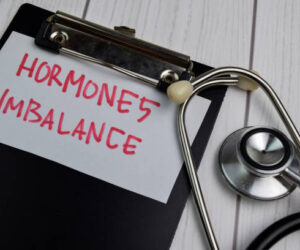
There are countless problems that can result if your body has imbalanced hormones. From diabetes to infertility and mood swings to depression, hormone imbalance can cause plenty of ailments. While consuming food, we hardly think about the impact of those eatables on our hormones. Hormone imbalance can be horrible for many; however, it can be dealt with by following an appropriate diet and lifestyle. Specific changes in your daily routine can do wonders in hormone balancing and heal various health conditions caused as a result of imbalanced hormones. Check out some of the lifestyle changes you need to handle hormone imbalance.
Diet Changes You Need To Ensure Hormonal Balance
Our body contains various different types of hormones responsible for diverse functions. The symptoms and health conditions may vary according to different hormonal imbalances. These diet changes can help you lower the effects of this inappropriate functioning. Explore what you need to do:
Consuming The Correct Amount Of Protein:
Eating food rich in protein is essential to maintain good health. Protein is crucial for the body as it produces protein-derived hormones required for fulfilling some functions in the body. The endocrine gland in the body produces peptide hormones from the amino acids created with protein.
The right amount of protein consumption ensures the correct functioning of the metabolism and appetite and interchange the information about the energy requirements to the brain. Some of the rich-protein meals are eggs, chicken breast, fish, and lentils. According to the experts, on average, everyone must consume at least 20-30 grams of protein in every meal.
Regular Workout:
Physical activities are nothing less than a blessing for balancing hormones. When someone indulges in regular workout sessions, the hormone signals and nutrient absorption power increases in the body. With daily exercise, insulin levels are lowered while insulin sensitivity increases. People with insulin resistance health conditions are at risk of chronic ailments, diabetes, and obesity. Regular workout sessions help the body improve insulin resistance regardless of a person’s weight.
Exercises such as stretching sessions, cardio, and high-intensity interval training may be helpful in improving health. Daily walking and running can also make a huge difference in elevating health conditions.
Maintain Weight:
Weight gain is a direct sign of hormonal imbalance, resulting in several health conditions and ailments. Moreover, obesity promotes the risk of insulin resistance in the body. Additionally, when a moderate weight is maintained, a person is at less risk of heart disease, diabetes, and other health conditions.
Obese women and men may encounter more reproductive system issues than others, as weight gain is associated with a reduction in reproductive hormones. However, the study has evaluated that losing weight can help reverse this condition.
Consume Less Sugar:
Reducing sugar intake can help resist several health conditions such as diabetes and obesity. Controlled sugar intake is beneficial in maintaining the hormonal balance in the body.
The added-sugar products such as soft drinks, fruit juice, and energy drinks are the primary source of fructose sugar and may encourage insulin resistance in the body. If consumed regularly, it may promote interruption in the gut microbiome, which further causes hormonal imbalance in the body. Additionally, it may disrupt the calory burning in the body and result in weight gain.
Therefore, to adopt a hormone-balancing lifestyle, the sugar intake should be limited to a lower level.
Final Words
Though there could be several reasons for a hormonal imbalance in someone’s body, the lifestyle alternations mentioned above can considerably lower the impacts. Some health conditions caused by hormonal imbalances may need to be treated by professionals, but these healthy habits can effectively promote hormone balancing in the body.
